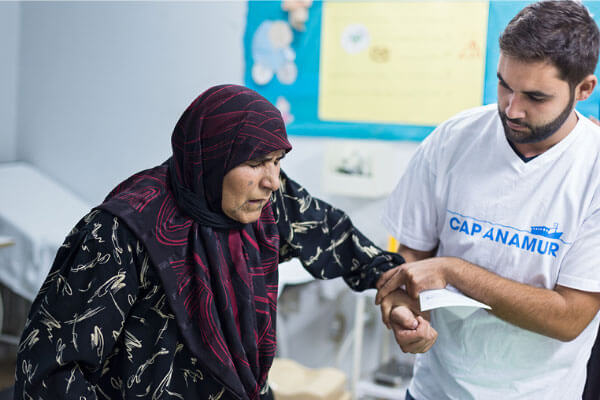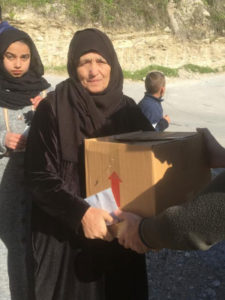Lebanon Continues to Move to the Edge of the Abyss
For two weeks now, the situation in Lebanon has been worsening again - Cap Anamur is helping, despite catastrophic conditions.
Not only since the explosion in Beirut a year ago has the country been battling a financial and economic crisis and the prevalence of corruption. Inflation is currently rising faster than ever before, and many essential goods are no longer affordable for the majority of the population.
For weeks, the supply of gasoline has also become increasingly problematic, and last week the situation escalated. This is because electricity in Lebanon is supplied by gasoline-powered generators. The fuel shortage now meant that these generators were no longer able to provide the power supply. As a result, power has been out for hours across the country since last weekend.

The consequences of the collapse of the power grid are catastrophic
There are not enough private power generators to provide refrigeration chains, for example. So tons of food is spoiling right now. And that on top of the already very precarious supply situation. Because food is becoming increasingly scarce or is so expensive that hardly anyone can afford it. Vital medicines for chronically ill people have also been unavailable for some time.
Without electricity, hospitals also cannot maintain their operations. People on ventilators or who need critical dialysis treatments are at risk of dying.
The collapse of the power grid and the catastrophic supply situation are bringing the country to the brink of a humanitarian catastrophe.

Cap Anamur continues to ensure aid for the poorest in the country
For our project in southern Lebanon – in Sidon – these developments mean that we have to tap into our reserves. So far, we have provided medical care to Syrian refugees in the settlements around Sidon with a mobile clinic. Now we have to coordinate and schedule these missions differently due to fuel shortages.
With the physiotherapy practice, with which we treat children with physical and mental disabilities, we continue to be active, but we have to adapt the transportation of children to the situation.
We can continue to support the approximately 2,000 Syrian families that we regularly provide with food parcels. Our supply network is stable enough that we continue to receive the most important foodstuffs.
Due to the presence of our project manager Volker Rath, we have been able to assess the developments in the country for some time and have stockpiled some goods.
Volker Rath reports on the current situation in Lebanon:
“We need to tap into our reserves now in order to continue to help. We had the foresight to build storage capacity for medicines, medical supplies, food and gasoline. Currently, we can’t get any more supplies into the isolated country, so now we have to get our supplies from these stockpiles.

In order to continue to provide aid to the people of Lebanon, we are also dependent on help.

